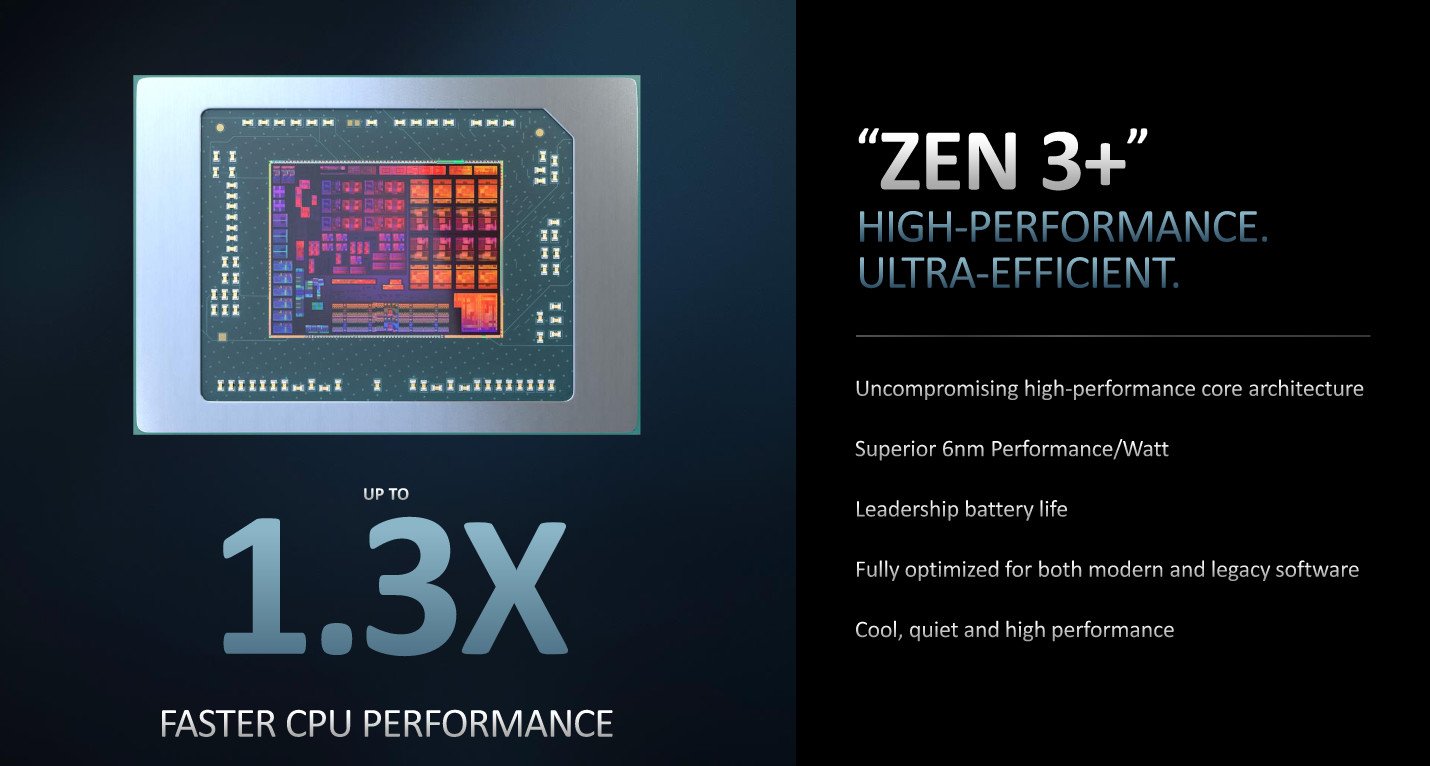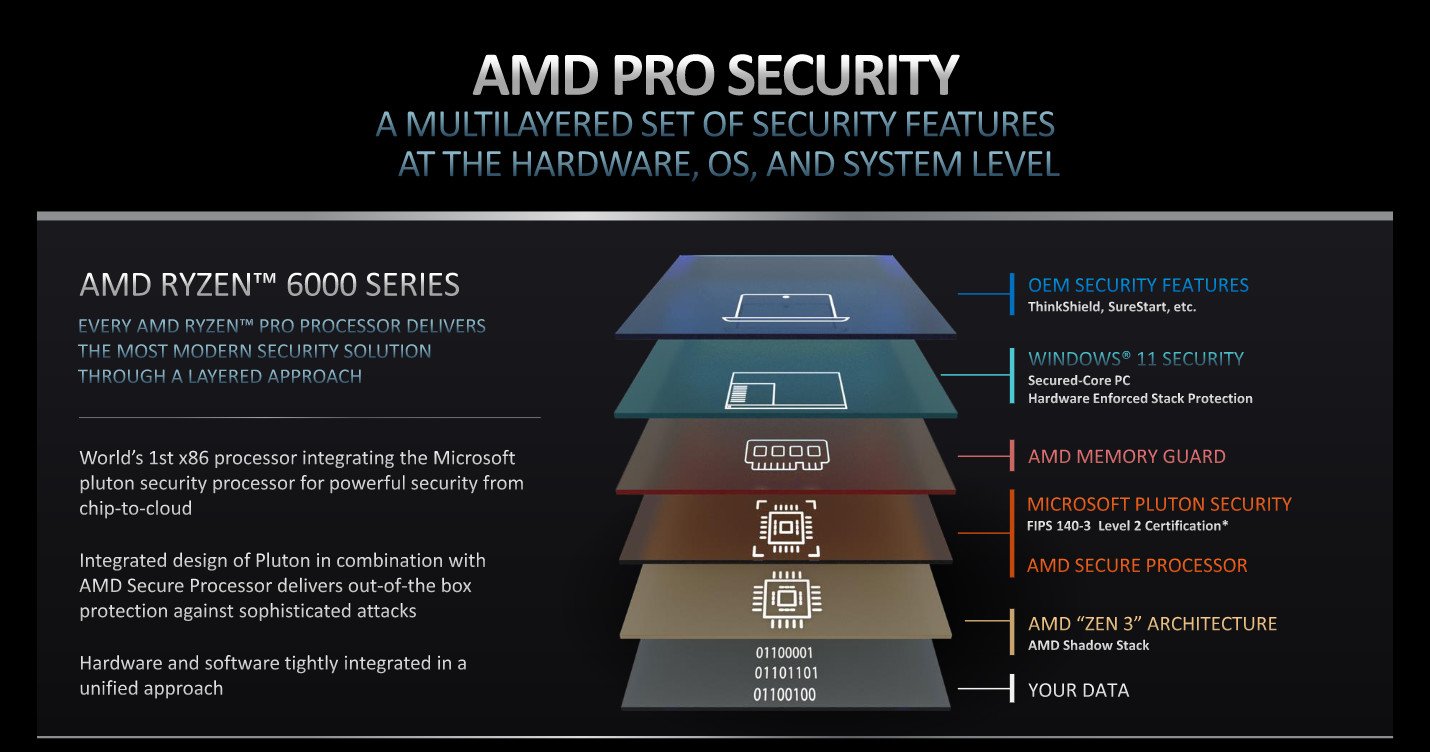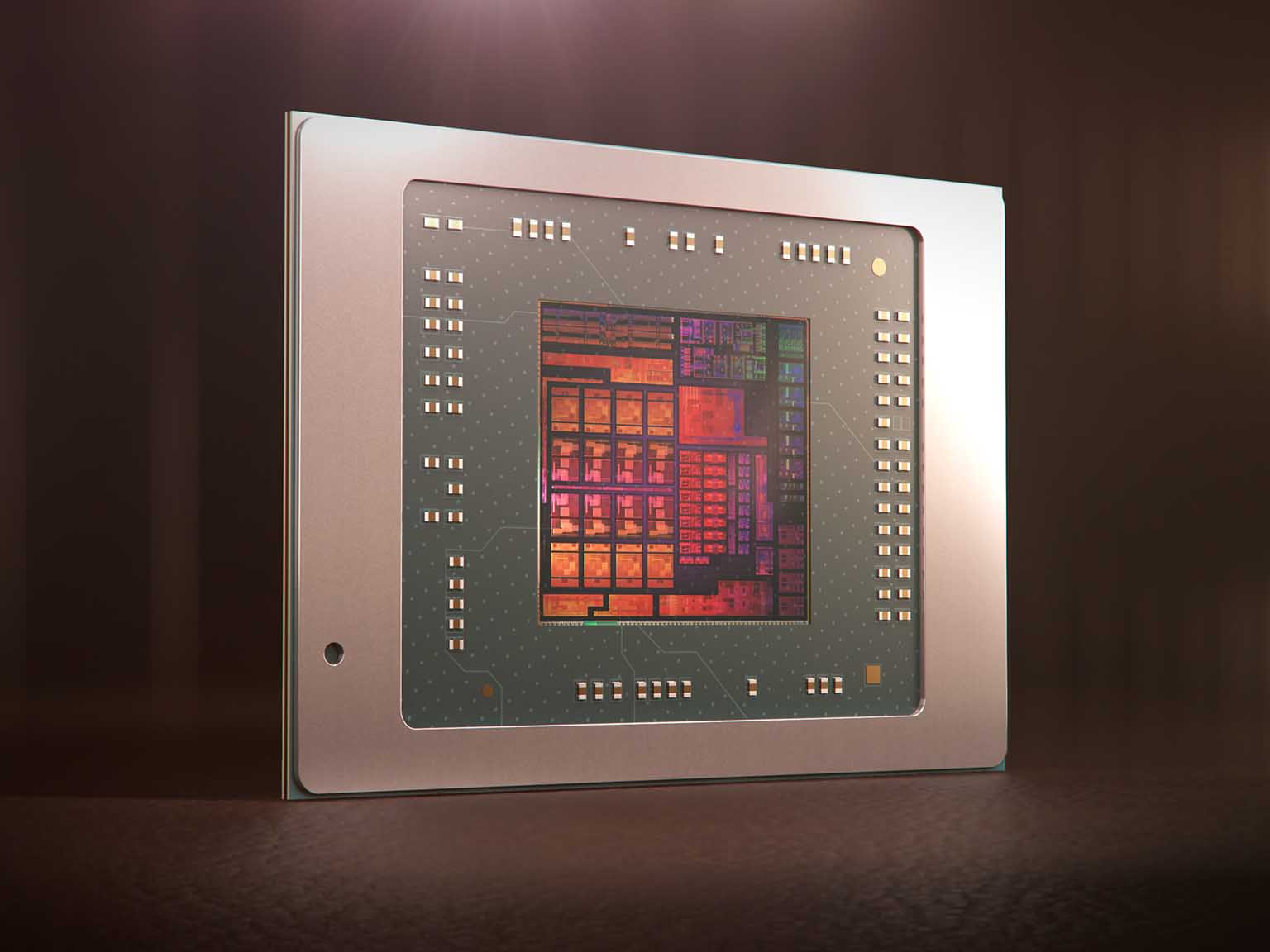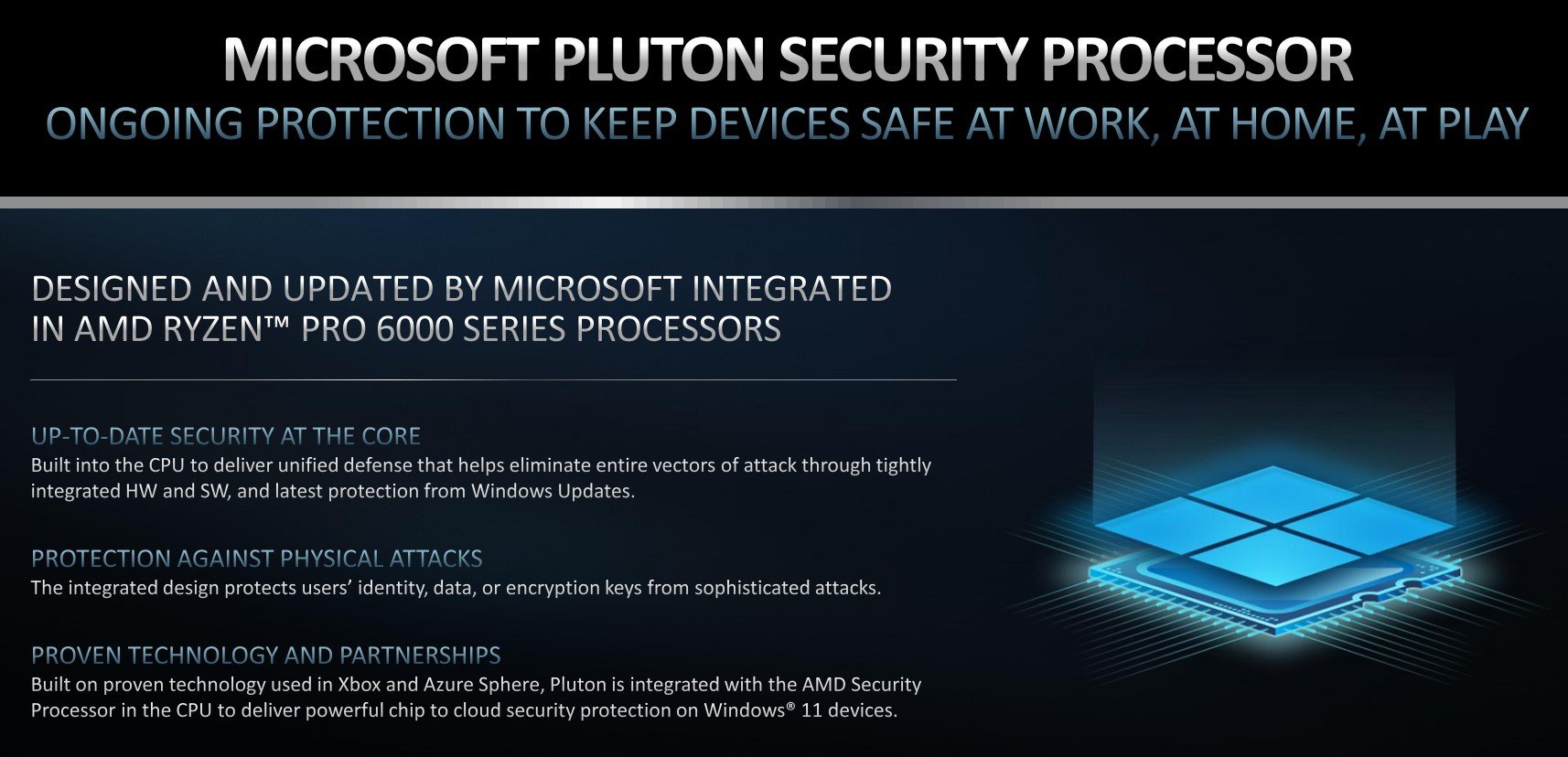How to pick the right AMD Ryzen 5000 and 6000 Mobile processor
AMD Ryzen 5000 Mobile processors are available in plenty of laptops. Which one is right for you?
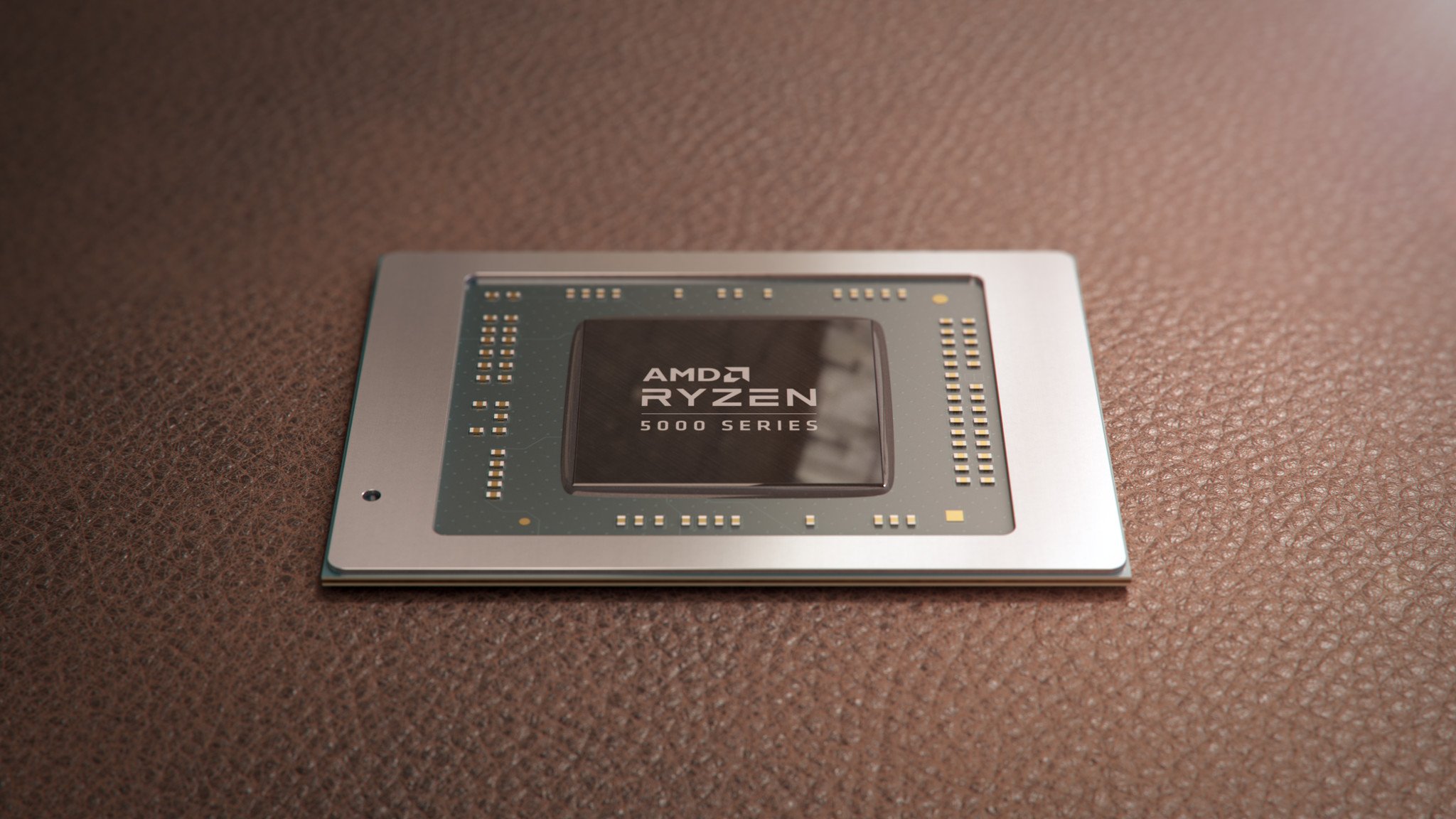
All the latest news, reviews, and guides for Windows and Xbox diehards.
You are now subscribed
Your newsletter sign-up was successful
AMD unveiled its Ryzen 5000 Mobile processors (CPU) at CES 2021, complementing its lineup of powerful desktop processors with performant and power-efficient mobile chips. These proved to be incredibly popular, and in an effort to build on the success of Ryzen 5000, AMD introduced Ryzen 6000 Mobile CPUs a year later at CES 2022. Like the Ryzen 4000 Mobile CPUs before them, both Ryzen 5000 Mobile and Ryzen 6000 Mobile chips are split into H-series and U-series options. The former chips are meant for gaming and creator laptops, while the latter chips are meant for thin, light laptops with snappy performance and long battery life.
There are quite a few different CPUs across both generations and in each series, and we're expecting them to show up in the best Windows laptop options out there. Buying the right one for your needs can be difficult. We break things down here to ensure you're getting the right hardware for the task at hand.
Both AMD Ryzen PRO 5000 Mobile and PRO 6000 Mobile CPUs are included in the list as well. These chips go head-to-head with Intel's Core vPro CPUs and are designed with the needs of businesses in mind. Read on to see exactly why they're an important part of AMD's Mobile landscape.
AMD Ryzen 6000 H-series Mobile CPUs
AMD Ryzen 6000 H-series CPUs have officially entered the laptop scene, and we're going to go over them first before having a look at AMD's other Ryzen 6000 processors. Compared to U-series CPUs, H-series chips are built with gaming and intensive creative work in mind and are closer to AMD's desktop processors in terms of performance.
AMD splits its H-series Ryzen Mobile processors into three categories, much like Intel does with its Core line. Note that since H-series CPUs are meant for heavy tasks like gaming or creative work, most of the H-series chips in the Ryzen 6000 generation are of the Ryzen 9 variety. Out of all of the processors in the H-series lineup, these are the most powerful, though Ryzen 5 and 7 H-series CPUs are incredibly capable as well.
- Ryzen 5 — 6 cores, 12 threads
- Ryzen 7 — 8 cores, 16 threads
- Ryzen 9 — 8 cores, 16 threads
AMD has designed its Ryzen 6000 H-series CPUs with a 6nm process and the new Zen 3+ architecture, with a starting TDP of 35W with the Ryzen 5 6600HS and a max TDP of 45+ with the Ryzen 9 6980HX. Here's a complete list of every Ryzen 6000 H-series processor available.
AMD Ryzen 5 6000 H-series Mobile CPUs
| CPU | Cores | Threads | Base/Boost Clock | Cache | Node | TDP |
|---|---|---|---|---|---|---|
| AMD Ryzen 5 6600HS | 6 | 12 | 3.3GHz (4.5GHz) | 19MB | 6nm | 35W |
| AMD Ryzen 5 6600H | 6 | 12 | 3.3GHz (4.5GHz) | 19MB | 6nm | 45W |
There are two Ryzen 5 CPUs in the Ryzen 6000 H-series lineup: the Ryzen 5 6600HS and the Ryzen 5 6600H. Each one has 6 cores, 12 threads, and a boost clock speed of 4.5Ghz. The key difference between the two chips is TDP; the Ryzen 5 6600HS has a TDP of 35W, while the Ryzen 5 6600H has a TDP of 45W. This means that the former will be ideal for devices designed to be thin and lightweight, while the latter is better for maximizing performance.
All the latest news, reviews, and guides for Windows and Xbox diehards.
Bottom line: Ryzen 5 6000 H-series CPUs are an excellent choice for gamers, content creators, and creative workers who need something that's both performant and affordable. They're not as powerful as Ryzen 7 or 9 H-series chips, but they'll also make less of a dent in your bank account.
AMD Ryzen 7 6000 H-series Mobile CPUs
| CPU | Cores | Threads | Base/Boost Clock | Cache | Node | TDP |
|---|---|---|---|---|---|---|
| AMD Ryzen 7 6800HS | 8 | 16 | 3.2GHz (4.7GHz) | 20MB | 6nm | 35W |
| AMD Ryzen 7 6800H | 8 | 16 | 3.2GHz (4.7GHz) | 20MB | 6nm | 45W |
The two Ryzen 7 chips in the Ryzen 6000 H-series lineup are, much like the previous Ryzen 5 CPUs we covered, identical in many ways. Both the Ryzen 7 6800HS and the Ryzen 7 6800H have 8 cores, 16 threads, and a max boost clock of 4.7GHz. Again, the TDP is where the distinction lies, as the lower TDP of the Ryzen 7 6800HS makes it better for thin-and-light laptops while the 45W TDP of the Ryzen 7 6800H makes it the best choice for laptops that are designed to be as powerful as possible.
These chips perform better than Ryzen 5 6000 H-series processors do, though they're still less powerful than the beefy Ryzen 9 ones we're going to cover next. Overall, the above Ryzen 7 CPUs offer a great balance of performance and price, which typically makes them the best choice for the average user.
Bottom line: AMD's Ryzen 7 6000 H-series CPUs are generally going to be the best option for most people, as they offer an excellent balance between performance and cost. They don't have the raw power of Ryzen 9 chips, but they're also considerably less expensive.
AMD Ryzen 9 6000 H-series Mobile CPUs
| CPU | Cores | Threads | Base/Boost Clock | Cache | Node | TDP |
|---|---|---|---|---|---|---|
| AMD Ryzen 9 6900HS | 8 | 16 | 3.3GHz (4.9GHz) | 20MB | 6nm | 35W |
| AMD Ryzen 9 6900HX | 8 | 16 | 3.3GHz (4.9GHz) | 20MB | 6nm | 45W+ |
| AMD Ryzen 9 6980HS | 8 | 16 | 3.3GHz (5.0GHz) | 20MB | 6nm | 35W |
| AMD Ryzen 9 6980HX | 8 | 16 | 3.3GHz (5.0GHz) | 20MB | 6nm | 45W+ |
There are four processors in the Ryzen 9 6000 H-series Mobile CPU class: the Ryzen 9 6900HS, 6900HX, 6980HS, and the 6980HX. The former two are on the slightly less powerful side, while the latter deliver the best performance available in an AMD-powered laptop. CPUs with the "S" suffix feature a lower TDP, while ones with the "X" suffix have a higher TDP as well as slightly higher performance.
It doesn't get better than the Ryzen 9 6000 H-series processors, as they're designed to crush whatever you throw at them. Whether you want to game at high settings, put your laptop through the wringer with intensive rendering workloads, or edit images and videos at high resolutions like 4K, these CPUs can handle it all without even breaking a sweat. All that power comes with a hefty price tag, though.
Bottom line: While they're by far the most expensive chips of the bunch, Ryzen 9 6000 H-series CPUs are unrivaled when it comes to performance. If you want the best of the best and you don't care how much it costs, Ryzen 9 6000 H-series processors will be perfect for you.
AMD Ryzen 6000 U-series Mobile CPUs
Compared to previous generations of AMD's Ryzen U-series CPUs that have had three different classes, there are only two categories of Ryzen 6000 U-series processors: Ryzen 5 and Ryzen 7. Traditionally, AMD has also produced budget-class Ryzen 3 chips, but currently no Ryzen 3 6000 U-series processors have been developed.
- Ryzen 5 — 6 cores, 12 threads
- Ryzen 7 — 8 cores, 16 threads
Compared to AMD's Ryzen 6000 H-series, the U-series is focused more on achieving a low TDP and delivering industry-leading battery life instead of maximizing raw performance. This is because U-series processors are primarily designed for thin and light notebooks and Ultrabooks that are designed for lighter productivity work rather than gaming or resource-intensive programs.
Like its Ryzen 6000 H-series processors, AMD's Ryzen 6000 U-series CPUs are built on AMD's 6nm process and Zen 3+ architecture. Not only do these processors deliver better performance compared to past generations, but they also have better power efficiency and battery life as well. Currently, there are only two Ryzen 6000 U-series CPUs available.
AMD Ryzen 5 6000 U-series Mobile CPUs
| CPU | Cores | Threads | Base/Boost Clock | Cache | Node | TDP |
|---|---|---|---|---|---|---|
| AMD Ryzen 5 6600U | 6 | 12 | 2.9 GHz (4.5GHz) | 19MB | 6nm | 15-28W |
The Ryzen 5 6600U is the best CPU in AMD's Ryzen 6000 U-series CPU lineup if you're looking for something balanced and mid-range. Since it delivers good performance and is incredibly power efficient, it's ideal for people who want a productivity laptop with maximized battery life. It's also less expensive than the Ryzen 7 alternative, making it the most affordable option.
Bottom line: The Ryzen 5 6600U is the best Ryzen 6000 CPU if you're in need of something that delivers good performance while also being as power efficient and long-lasting as possible. Notably, it's also the most affordable processor of the 6000 generation.
AMD Ryzen 7 6000 U-series Mobile CPUs
| CPU | Cores | Threads | Base/Boost Clock | Cache | Node | TDP |
|---|---|---|---|---|---|---|
| AMD Ryzen 7 6800U | 8 | 16 | 2.7GHz (4.7GHz) | 20MB | 6nm | 15-28W |
The other Ryzen 6000 U-series processor available is the Ryzen 7 6800U. Compared to its Ryzen 5 counterpart, this CPU has considerably better performance, but also a considerably higher price. Since it's a U-series CPU, the Ryzen 7 6800U will be able to achieve excellent battery life.
Bottom line: The Ryzen 7 6800U is ideal for folks who want the best performance available from AMD's U-series collection of Ryzen 6000 CPUs, though it's important to note that it will also cost more than the Ryzen 5 6600U. Like its Ryzen 5 counterpart, though, the Ryzen 7 6800U can achieve excellent battery life thanks to AMD's power-efficiency optimizations.
AMD Ryzen PRO 6000 Mobile CPUs
AMD has also announced Ryzen PRO 6000 Mobile CPUs for business-focused PCs. AMD focuses on unhindered productivity thanks to strong performance and long battery life, rigid security from multiple angles with AMD Shadow Stack, Secured Core PC, and FIPS 140-3 certification, and easy enterprise deployment and management with long-lasting durability.
These Ryzen PRO CPUs are technically included in both the H-series and U-series lineups, and they compete with Intel Core vPro options. They're all using the Zen 3+ architecture, and they're all built on a 6nm node as well. Here's a complete breakdown of each Ryzen PRO 6000 Mobile CPU.
| Model | Cores (Threads) | Frequency (Up to) | L2 + L3 Cache | TDP |
|---|---|---|---|---|
| Ryzen 9 PRO 6950H | 8 (16) | 3.3 (4.9) GHz | 20MB | 45W |
| Ryzen 9 PRO 6950HS | 8 (16) | 3.3 (4.9) GHz | 20MB | 35W |
| Ryzen 7 PRO 6850H | 8 (16) | 3.2 (4.7) GHz | 20MB | 45W |
| Ryzen 7 PRO 6850HS | 8 (16) | 3.2 (4.7) GHz | 20MB | 35W |
| Ryzen 5 PRO 6650H | 6 (12) | 3.3 (4.5) GHz | 19MB | 45W |
| Ryzen 5 PRO 6650HS | 6 (12) | 3.3 (4.5) GHz | 19MB | 35W |
| Ryzen 7 PRO 6850U | 8 (16) | 2.7 (4.7) GHz | 20MB | 28W (15-30W) |
| Ryzen 5 PRO 6650U | 6 (12) | 2.9 (4.5) GHz | 19MB | 28W (15-30W) |
AMD claims that its Ryzen PRO 6000 CPUs beat out Intel's latest 12th Gen vPro processors, though whether or not its in-house benchmarks line up with results from our planned independent testing remains to be seen. Regardless, Ryzen PRO 6000 CPUs will be powerful and efficient options for business PCs.
AMD Ryzen 5000 H-series Mobile CPUs
Laptops with AMD Ryzen 5000 H-series CPUs are widely available, and we'll focus on the more powerful hardware first. Like the H-series chips from the 6000 generation, CPUs are closer to AMD's desktop hardware than the U-series options. Also like the processors from the 6000 generation, AMD splits up its Ryzen 5000 H-series chips into three categories: Ryzen 5, Ryzen 7, and Ryzen 9.
- Ryzen 5 — 6 cores, 12 threads
- Ryzen 7 — 8 cores, 16 threads
- Ryzen 9 — 8 cores, 16 threads
AMD has built these CPUs with a 7nm process. They have a TDP starting at 35W with the Ryzen 5 5600HS, and they go up to 45W+ with the Ryzen 9 5980HX. Let's take a closer look at these CPUs that are only available in laptops.
AMD Ryzen 5 5000 H-series CPUs
| CPU | Cores | Threads | Base/Boost Clock | Cache | Node | TDP |
|---|---|---|---|---|---|---|
| AMD Ryzen 5 5600HS | 6 | 12 | 3.0GHz (4.2GHz) | 19MB | 7nm | 35W |
| AMD Ryzen 5 5600H | 6 | 12 | 3.3GHz (4.2GHz) | 19MB | 7nm | 45W |
There are two Ryzen 5 CPUs in this class: the Ryzen 5 5600HS and Ryzen 5 5600H. Each has 6 cores and 12 threads, and a boost clock speed of 4.2GHz. However, the "HS" version has a lower 35W TDP compared to a 45W TDP in the "H" version. Expect to see the 5600HS in gaming laptops that go for the thin and light look.
Bottom line: Ryzen 5 5000 H-series CPUs are an excellent jumping-off point for gamers and creators who aren't looking to push their systems to the absolute maximum. They cost less, and they should be a great choice for the average gamer or creator.
AMD Ryzen 7 5000 H-series CPUs
| CPU | Cores | Threads | Base/Boost Clock | Cache | Node | TDP |
|---|---|---|---|---|---|---|
| AMD Ryzen 7 5800HS | 8 | 16 | 2.8GHz (4.4GHz) | 20MB | 7nm | 35W |
| AMD Ryzen 7 5800H | 8 | 16 | 3.2GHz (4.4GHz) | 20MB | 7nm | 45W |
Ryzen 7 5000 CPUs are where most people will settle. There are two options: the Ryzen 7 5800HS and the Ryzen 5800H — each with 8 cores and 16 threads. Again, the "HS" version comes in at a lower 35W TDP, while the "H" version hits a higher 45W TDP.
These CPUs will handle just about any modern game, and they'll put up a strong fight against intensive design and development software. The extra cores over the Ryzen 5 chips make them better for multitasking, and they likewise have a higher boost clock speed.
Bottom line: Ryzen 7 H-series CPUs should be the right choice for most people with a little bit more money to spend. They're going to deliver high-end gaming and creating performance, and they cost less than Ryzen 9.
AMD Ryzen 9 5000 H-series CPUs
| CPU | Cores | Threads | Base/Boost Clock | Cache | Node | TDP |
|---|---|---|---|---|---|---|
| AMD Ryzen 9 5900HS | 8 | 16 | 3.0GHz (4.6GHz) | 20MB | 7nm | 35W |
| AMD Ryzen 9 5900HX | 8 | 16 | 3.3GHz (4.6GHz) | 20MB | 7nm | 45W+ |
| AMD Ryzen 9 5980HS | 8 | 16 | 3.0GHz (4.8GHz) | 20MB | 7nm | 35W |
| AMD Ryzen 9 5980HX | 8 | 16 | 3.3GHz (4.8GHz) | 20MB | 7nm | 45W+ |
The Ryzen 9 5000 H-series lineup has the most entries at four total. The Ryzen 9 5900HS and the Ryzen 9 5900HX are the more standard CPUs, with 35W and 45W+ respectively. Yes, the "HX" version can draw more power as needed for better performance, and it should be reserved for larger laptops. The "HS" version is again reserved for thin and light notebooks.
There are also Ryzen 9 5980HS and Ryzen 9 5980HX CPUs, each with 8 cores and 16 threads. These deliver a higher boost clock for improved performance, and they're also pegged at the same 35W and 45W+ TDP.
Bottom line: Ryzen 9 CPUs are reserved for the most powerful laptops out there. The 5900HS and 5900HX should cost less than the 5980 counterparts, but all will deliver top-end performance for gamers and creators who want to push their system to the next level.
AMD Ryzen 5000 U-series Mobile CPUs
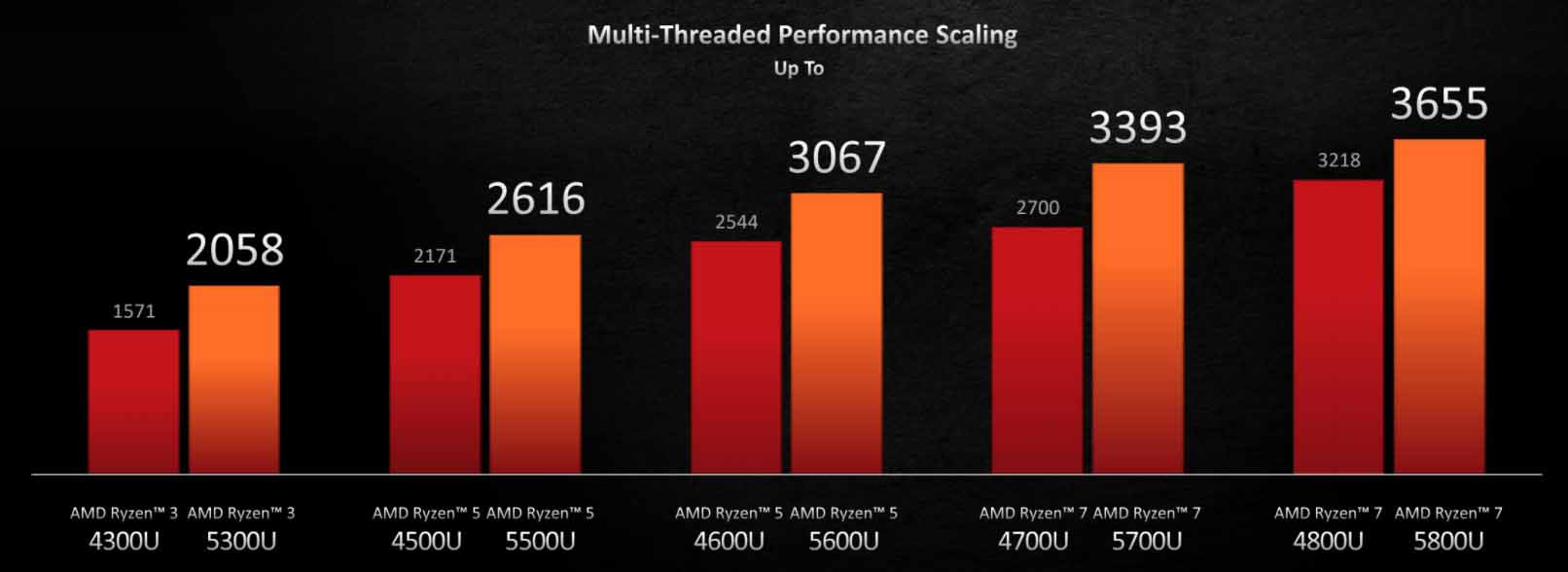
AMD divides its U-series Ryzen CPUs into three different categories, starting with the Ryzen 3 and moving up to the Ryzen 7. These entries mirror Intel's Core series, and you can expect them to compare in terms of appropriate workload and performance. There are also PRO versions of the Ryzen 5000 U-series chips, which we cover in the next section.
- Ryzen 3 — 4 cores, 8 threads
- Ryzen 5 — 6 cores, 12 threads
- Ryzen 7 — 8 cores, 16 threads
Whereas the Ryzen 5000 H-series CPUs are all based on the modern Zen 3 architecture, not all Ryzen 5000 U-series CPUs are the same. The lone Ryzen 3 and one each of the new Ryzen 5 and Ryzen 7 CPUs are still using the Zen 2 architecture, as we'll see below. These will still perform well, but they do have a smaller cache and overall less performance than their Zen 3 siblings.
AMD Ryzen 3 5000 U-series CPUs
| CPU | Cores | Threads | Base/Boost Clock | Cache | Node | TDP | Architecture |
|---|---|---|---|---|---|---|---|
| AMD Ryzen 3 5300U | 4 | 8 | 2.6GHz (3.8GHz) | 6MB | 7nm | 15W | Zen 2 |
| AMD Ryzen 3 5425U | 4 | 8 | 2.7GHz (4.1GHz) | 10MB | 7nm | 15W | Zen 3 |
The Ryzen 3 5300U, based on the Zen 2 architecture, sits alone and should be reserved for low-impact work only. You should find it in budget laptops looking to keep cost down and performance modest. There's also the new Ryzen 3 5425U, which has a larger cache and delivers improved performance compared to the Ryzen 3 5300U thanks to its Zen 3 architecture.
Bottom line: Both the Ryzen 3 5300U and the Ryzen 3 5425U are good for productivity work, like word processing, web browsing, and streaming. Heavy multitasking will cause problems.
AMD Ryzen 5 5000 U-series CPUs
| CPU | Cores | Threads | Base/Boost Clock | Cache | Node | TDP | Architecture |
|---|---|---|---|---|---|---|---|
| AMD Ryzen 5 5500U | 6 | 12 | 2.1GHz (4.0GHz) | 8MB | 7nm | 15W | Zen 2 |
| AMD Ryzen 5 5600U | 6 | 12 | 2.3GHz (4.2GHz) | 19MB | 7nm | 15W | Zen 3 |
| AMD Ryzen 5 5625U | 6 | 12 | 2.3GHz (4.3GHz) | 19MB | 7nm | 15W | Zen 3 |
All three Ryzen 5 chips have a 15W TDP with 6 cores and 12 threads, but only the 5600U and 5625U use the new Zen 3 architecture with a larger cache and better overall performance. Stick with the 5600U or 5625U for the better buy in this regard.
Bottom line: The Ryzen 5 5000 U-series CPUs should be reserved for more intensive work and even some light gaming. The six cores provide lots of power, yet they don't cost as much as the Ryzen 7.
AMD Ryzen 7 5000 U-series CPUs
| CPU | Cores | Threads | Base/Boost Clock | Cache | Node | TDP | Architecture |
|---|---|---|---|---|---|---|---|
| AMD Ryzen 7 5700U | 8 | 16 | 1.8GHz (4.3GHz) | 8MB | 7nm | 15W | Zen 2 |
| AMD Ryzen 7 5800U | 8 | 16 | 1.9GHz (4.4GHz) | 20MB | 7nm | 15W | Zen 3 |
| AMD Ryzen 7 5825U | 8 | 16 | 2.0GHz (4.5GHz) | 20MB | 7nm | 15W | Zen 3 |
There are three U-series options here, with the Ryzen 7 5700U sticking with Zen 2 while the Ryzen 7 5800U and 5825U move up to Zen 3. These CPUs are cut out for heavy multitasking thanks to eight cores, and they'll even handle a bit of gaming. Go with the Ryzen 7 5825U for best results thanks to the larger cache and better overall performance.
Bottom line: Those who are looking for a thin and light notebook with excellent performance should opt for the Ryzen 7. Extra cores and a higher boost clock mean more power compared to Ryzen 5 and Ryzen 3, and they're still set at a 15W TDP.
AMD Ryzen PRO 5000 Mobile CPUs
AMD has also produced several different Ryzen PRO 5000 Mobile CPUs, and like their 6000 counterparts, these processors are designed with the security and deployment needs of businesses in mind. Those extra features typically result in a bit of a higher cost compared to non-PRO chips, but for many businesses, the advantages of Ryzen PRO processors are worth it.
These Ryzen PRO CPUs are technically included in the U-series lineup, and they compete with Intel Core vPro options. They're all using the Zen 3 architecture, they're all built on a 7nm node, and all have a 15W TDP. Following is a closer look at the specs of the three new Ryzen PRO 5000 CPUs.
| CPU | Cores | Threads | Base/Boost Clock | Cache | Node | TDP | Architecture |
|---|---|---|---|---|---|---|---|
| AMD Ryzen 3 PRO 5450U | 4 | 8 | 2.6GHz (4.0GHz) | 10MB | 7nm | 15W | Zen 3 |
| AMD Ryzen 3 PRO 5475U | 4 | 8 | 2.7GHz (4.1GHz) | 10MB | 7nm | 15W | Zen 3 |
| AMD Ryzen 5 PRO 5650U | 6 | 12 | 2.3GHz (4.2GHz) | 19MB | 7nm | 15W | Zen 3 |
| AMD Ryzen 5 PRO 5675U | 6 | 12 | 2.3GHz (4.5GHz) | 19MB | 7nm | 15W | Zen 3 |
| AMD Ryzen 7 PRO 5850U | 8 | 16 | 1.9GHz (4.4GHz) | 20MB | 7nm | 15W | Zen 3 |
| AMD Ryzen 7 Pro 5875U | 8 | 16 | 2.0GHz (4.5GHz) | 20MB | 7nm | 15W | Zen 3 |
AMD showed off numerous productivity benchmarks comparing the new Ryzen 7 PRO with an Intel Core i7-1185G7 CPU with 28W TDP. In these tests, AMD pulls ahead or ties Intel's CPU. We will have to test ourselves, but it's clear AMD put a lot of effort into getting its PRO chips to another level of performance at the lower 15W TDP.
A similar performance tier exists here, with the Ryzen 3 PRO being an affordable CPU with modest performance, the Ryzen 5 PRO costing more and being the right choice for many people, and the Ryzen 7 PRO offering ultimate performance with enterprise features included.
Zen 3 architecture, which originally launched with desktop CPUs like the AMD Ryzen 7 5800X and AMD Ryzen 9 5950X, has been refined for the mobile space. There is twice as much L3 cache as the Ryzen 4000 Mobile chips, and the L3 cache unification means it can be accessed by all cores. The Zen 3+ architecture further enhances what AMD started with Zen 3, leading to the development of the manufacturer's cutting-edge Ryzen 6000 CPUs.
With the work refining the 7nm and 6nm process comes extended battery life. We will again have to do our own testing, but AMD has provided some numbers based on MobileMark 2018's battery rundown. The AMD Ryzen 7 PRO 3700U hit up to 7.2 hours while the Ryzen 7 PRO 4750U hit up to 16 hours. The Ryzen 7 PRO 5850U tops out at 17.5 hours.
Aside from performance and battery life, these new Ryzen chips also bring AMD PRO technologies and assurances for easier business use. AMD lays out four major factors that will help compete with Intel vPro, including software stability planning, long-term availability, more intense quality control, and long-term validation.
Be sure to check out our collection of the best AMD Ryzen laptops for more great laptops using Team Red hardware. And if you're interested in how AMD's Ryzen desktop CPUs compare (including 5000G APUs), check out everything you need to know about AMD Ryzen 5000 processors.

Cale Hunt brings to Windows Central more than nine years of experience writing about laptops, PCs, accessories, games, and beyond. If it runs Windows or in some way complements the hardware, there’s a good chance he knows about it, has written about it, or is already busy testing it.

